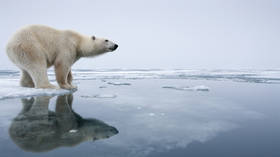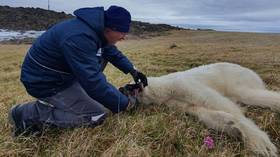Russia warns about dangers to the Arctic

A “security spillover” from worsening relations between the collective West and Russia has put on ice many initiatives vital to the environment and wellbeing of native populations in the Arctic, the Russian Foreign Ministry warned on Friday. However, Russia still hopes that the Arctic Council will resume normal operations in the near future.
Russia currently chairs the council, an inter-governmental forum established in 1996 to address the issues of the northern polar region. In early March, however, all of its other members – the US, Canada, Denmark, Finland, Iceland, Norway and Sweden – suspended their participation, citing the conflict in Ukraine.
“A so-called security-spillover has occurred in the Arctic, when some issue, conflict or event that lies outside the geographic boundaries of the region has a negative effect at the local level,” said Nikolay Korchunov, a special envoy at the Russian Foreign Ministry and Moscow’s senior representative to the Arctic Council.
“This is the first time this has happened in the Arctic Council’s 25 year-existence, even though many member countries over this period took part in numerous military interventions in various parts of the world,” Korchunov added.
Earlier this week, Korchunov hosted a roundtable on the future of the Arctic Council, with the participation of experts from Russia, China, India and Finland. The talk focused on security issues, strengthening mutual trust in a difficult geopolitical situation, and forms of mutually beneficial cooperation in the Arctic.
The council has effectively stopped functioning due to the Western boycott, Korchunov pointed out, but Moscow hopes it will resume its work at some point in the near future. About half of Russia’s projects within the council are aimed at improving the living standards of the region’s inhabitants, through initiatives such as the preservation of the native populations’ cultural heritage and history.
Russia is also seeking input from scientists and experts from non-Arctic states when it comes to climate and environmental protection issues, as they affect not just the region but the entire planet, Korchunov noted. Among the issues Moscow has raised at the Arctic Council are the melting of permafrost and the ensuing emissions of hydrocarbons into the atmosphere, as well as the effect of microplastic pollution on Arctic ecosystems and the need to preserve their biodiversity.
Commenting in April on the Western boycott of the council’s work, Korchunov insisted that it is “impossible to effectively ensure the sustainable development of the Arctic without Russia, a country that accounts for about 60% of the Arctic coast and is home to more than half of the region’s population.”













